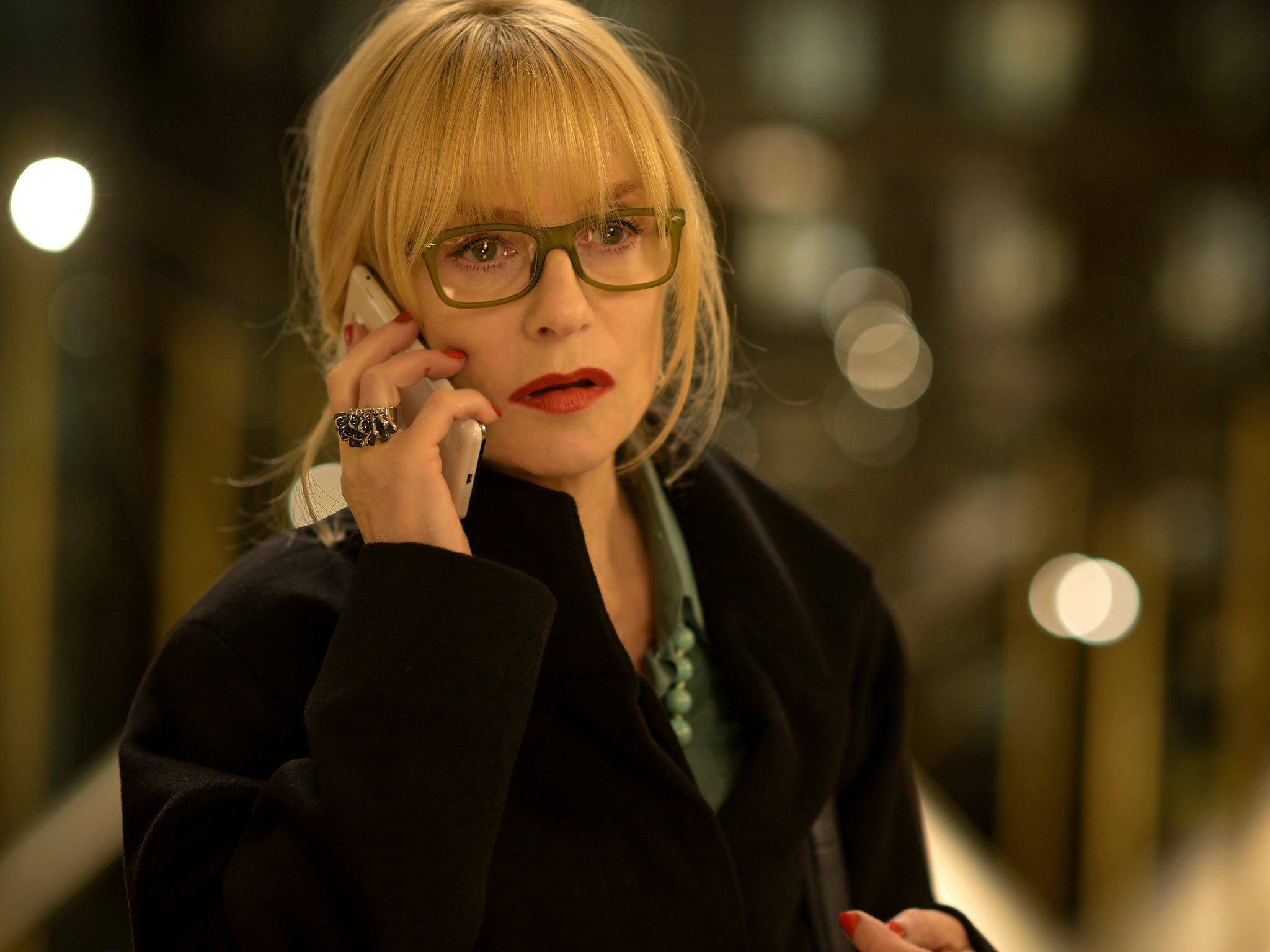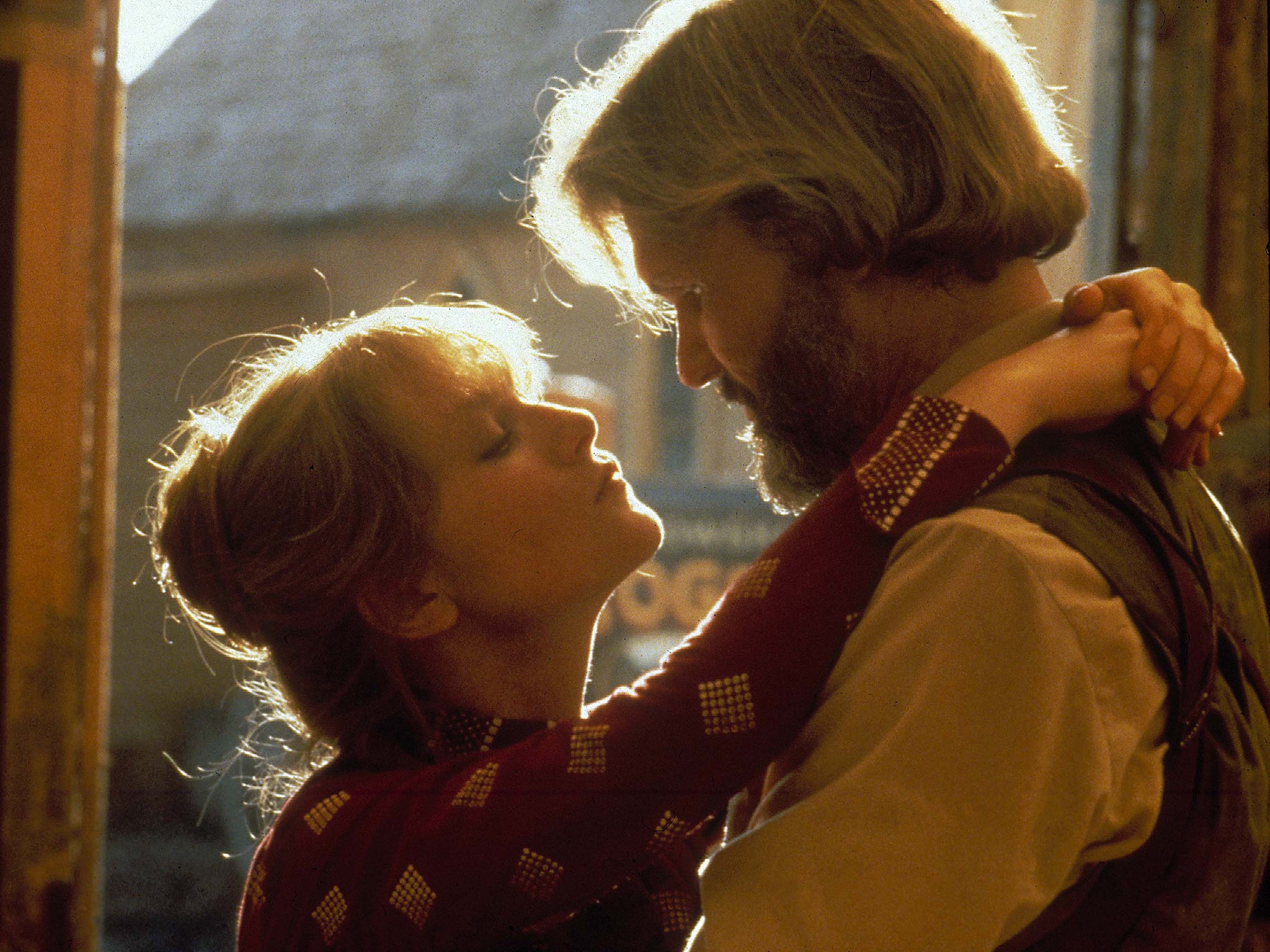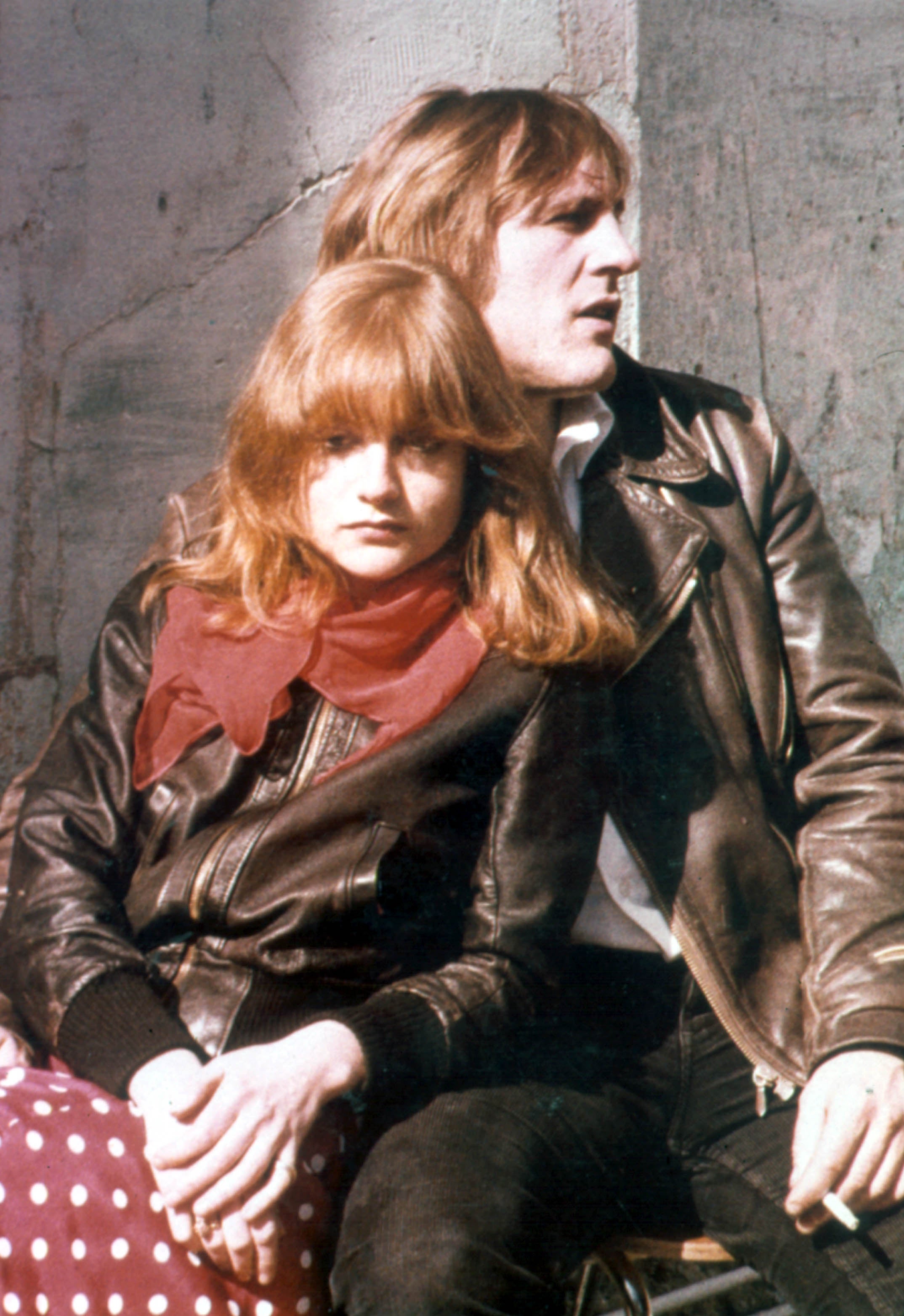Isabelle Huppert on nudity, the Paris protests and her reputation: ‘I think it’s easy to work with me’
As she portrays a true-life whistleblower who fought to clear her name, the César-winning, Oscar-nominated star of ‘Elle’, ‘The Piano Teacher’ and ‘Call My Agent’ – who is widely considered France’s most remarkable actor – speaks to Jasper Rees

Isabelle Huppert has played a nun who writes erotica, a self-harming piano teacher, a murderous postmistress, a vengeful rape victim, a patricidal prostitute, a drug-dealing translator, a matronly stalker, a sex-obsessed mother. How best to sum up the irreducible career of perhaps France’s most remarkable actor? “LOVER,” declares the dark blue T-shirt she’s wearing today, on the ninth floor of a glass-walled hotel overlooking St Pancras station. A more apt epithet would probably be “WORKAHOLIC”.
That was the caricature proposed by the French comedy drama Call My Agent!, in which Huppert played herself as an actress who just can’t say no, working day and night on two films in two languages while also nonchalantly accepting the stage role of Hamlet. “You have the stamina of a Nepalese Sherpa,” her fictional agent tells her.
“That was quite funny,” Huppert remembers. She emits a conspiratorial giggle. “It’s all an exaggeration, of course. I participated in the writing. And what was worst came from me.”
So does she know how many films she’s made? “Non,” she shrugs. “I know it’s a lot but I don’t know how many.” I make it around 115, including five still in post-production. Are there any that remain especially personal to her? “No. I don’t have favourites. You know the last one could be my favourite. I’m just coming back from Korea where I did a movie and so that’s probably my favourite.”
Of course, she’s teasing. But there are an awful lot of highlights to choose from. Take her cluttered trophy cabinet, which merely hints at the breadth and depth of a career matched only by Meryl Streep. A Bafta for most promising newcomer for the coming-of-age drama The Lacemaker (1978), Césars for the crime thriller A Judgement in Stone (1996) and the rape-revenge movie Elle (2017), for which she also won a Golden Globe and an Oscar nomination (she was pipped – unjustly in the view of many – by Emma Stone in La La Land). At Cannes, she won Best Actress for the murderess tale Violette Nozière (1978) and Michael Haneke’s gripping story of self-harm, The Piano Teacher (2001), which also brought a European Film Award. And so on and so on.
For now, there is La Syndicaliste. The eponymous union rep she plays in it is Maureen Kearney, a true-life Irishwoman who taught English at a French nuclear engineering company. In 2012, her life became far more dramatic: she blew the whistle when a mole leaked to her a secret plan to sell France’s nuclear technology to China. The story of corporate attempts to discredit Kearney would be shocking enough, but this is two films in one. The second half tells of her mysterious rape, her conviction for wasting police time, and her subsequent effort to clear her name.
Not that the story, which begins in 2011, was such a great scandal in France that Huppert had actually heard of it. “Were there so many articles written about it at the time?” she asks herself. “I doubt it. I just knew it when I read the book and script. She has several faces in the film – that was enough to attract me. I knew it was going to be ambiguous and complex beyond the story itself, which was interesting. The immense potential to cinema is to give access to this unsaid, unknown ambiguity. I don’t think you need answers when you watch films. You draw questions.”
Number one as a woman! Number two after Mr Denzel Washington. I was a little surprised when I read that
She certainly didn’t seek answers from Kearney, whom she didn’t meet but whose steely look – immaculate blow-dry, thickly rimmed glasses – she closely copied. “I did meet her in that sense – probably even more than if I had met her physically.” In one remarkable scene, straight after Kearney experiences the humiliation of a forensic examination of her vagina, she applies red lipstick defiantly. “That’s exactly what I call a question,” she says, “because people really wonder why she does that. I have no answer for that. But why wouldn’t she? She does it.”
La Syndicaliste transforms into a timely story about whether a woman’s testimony is to be believed. It could be read as a commentary on her own industry. “It’s a little bit different,” she says, “but enfin, yes, I know it’s not really different because she claims that she’s been attacked. Except that she never saw the man so she can’t even describe someone.”
It’s her second film with Jean-Paul Salomé, after their 2020 crime comedy Mama Weed. Her Call My Agent! episode was directed by Marc Fitoussi, with whom she’d made two films, the comedies Copacabana and Paris Follies. The film she’s just shot in South Korea is her third with Hong Sang-soo, who previously directed her in 2012’s In Another Country and 2017’s Claire’s Camera. She once said that her aspiration is always to be a director’s muse, and she can’t quite believe it whenever they choose another actress for their next film.
“That’s true, absolutely,” she says with a guiltless smile. “I have nothing to add.” But she then adds that she’s been thinking a lot about this. “I look back on my… whatever it is … regularly. I was noticing that I was quite lucky in that respect because I did work with many people many times. Four times with Haneke, six times with [Claude] Chabrol, six times with Benoît Jaquot. I worked often at least twice, which makes the pain of not being called again a little less. Twice is not too bad. Once is really bad.” Have there been specific roles that she regrets going elsewhere? “Ah, do you imagine that I will tell you? If you imagine this, no, I will never tell you. I won’t even tell you if I had the sensation.”

Huppert has arrived in London from a Paris aflame with rioting. “It’s also very difficult because you don’t want to draw conclusions, but the situation is certainly a great setback in so many respects. It’s terrible.” She looks perhaps a little tired but is also zippy with energy. Her eyes dart right and left, initially refusing (disdaining?) to settle on mine. I tell her that I first interviewed her in 1996 as she was about to work at the National Theatre. “Yes, yes – of course I remember,” she says blithely, as if this could possibly be the case.
The play was Schiller’s Mary Stuart, which she recalls as “intense, great, sometimes very difficult. It was my first English-speaking experience. Since I did The Maids with Cate [Blanchett, in 2014]. I did The Mother [in 2019]. But yeah, at the National Theatre for a French actress, it’s difficult.” Writing in The Independent at the time, Paul Taylor was not the only critic to prefer her dynamism to her diction: her “Gallic-vowelled delivery,” he wrote, “sometimes sounds like an attempt to sprint through glue”.
It’s sad, she adds, “because so many from this play are not here any more”. She lists her late co-stars Anna Massey and Tim Pigott-Smith, and the director Howard Davies. “I’m still here,” she adds, with Huppertesque insouciance. Recently she has revisited the character of Mary Queen of Scots in Mary Said What She Said, a monologue directed by Robert Wilson that opened before the pandemic. She’s returning to it next year. “My next two plays will be monologues,” she says. “It’s not my idea. Directors only want to do monologues with me, they don’t want to have anyone around me.”
She’s having another joke at her own expense. Daniel Auteuil once told me, having starred with her in the agonising adultery drama La Séparation (1994), that “Isabelle Huppert is an extremely easy actress to work with.” “It depends what you call easy because it’s never easy to make a film. But he’s right, yes, I think it’s easy to work with me.” She laughs.

Huppert’s first screen role in English was Otto Preminger’s Rosebud in 1975, her most recent in the Lesley Manville comedy Mrs Harris Goes to Paris. The one that should have been the biggest was Heaven’s Gate (1980), the critically panned western epic that served as director Michael Cimino’s follow-up to The Deer Hunter. Does she think her career would have been very different if it had been a hit?
“I think it was sliding doors for Michael Cimino,” she says. “There is some kind of a wound that never got healed after. But for myself, I don’t think so.” Does she nurse her own regrets? “Why would I regret? I can be sorry for the film, for sure, but I don’t regret for myself. No no, it’s one of the very few cases actually in the history of cinema: everybody admits it’s a great film but it’s a very interesting case of total rejection.”
Denied Hollywood stardom, Huppert was free to develop an eclectic European career. In 2020, the New York Times placed her second in the 25 greatest screen actors of the 21st century so far. “Number one as a woman!” she adds. “Number two after Mr Denzel Washington. I was a little surprised when I read that. I took it for myself and I took it for other people I had been working with. What else to say? Do you have an explanation?” Some of it looked a bit random, I suggest. Keanu Reeves at four? “Well that’s not a question, that’s your statement.”
Huppert has now been acting for so long, so I try to draw out her memories of movie-making in the 1970s. She’s evidently proud that her debut in 1972 was directed by a woman. Faustine et le bel été gave her the briefest cameo as a schoolgirl, but – a year shy of 20 – she’s identifiably Huppert, with the long strawberry blonde hair and the pretty freckled moue.
When I ask her if the industry has changed, she misconstrues this as a question about method and technique. “No, there is something of the core of movie-making that is the same and will always be the same.” I was really talking about the way women are treated. Her first great success in a lead role was in The Lacemaker, when she was nude even in the trailer. “Ah, that I don’t remember,” she says. “The role was so much exposed that I guess the whole trailer was nudity – nudity of feelings.”

She seems thankful when I return to her new film. It’s as if she’s reluctant to dwell on her longevity. “I’m glad we are back in our time because you seem to be very much attracted by the Seventies.” It’s only natural to be curious about such a big career, I argue. “But big in quality, not in quantity,” she says. “Anyway, let’s go back to our time.”
OK, so does she welcome the fact that, unlike Maureen Kearney, women in the film industry are now able to speak up? “Well, yes. Of course. If certain things have to be said, it’s good news that they can be said. Sometimes believed, sometimes not believed. Of course.” I mention Gérard Depardieu, with whom she first acted in Les Valseuses (1974) and most recently in Valley of Love (2015). Only this year he has been accused of sexual assault and sexual harassment by 13 women, which he denies. But by the time his name is in the room, our time has run out. “Don’t ask me,” she says with relief. “We are off now.”
Making films with him as with anyone, Huppert says she’s always been happy working. “I hope,” she says. “Because it would mean I am really unhappy 80 per cent of my life. It’s very simple and easy for me. I just like what I do, so I’m happy when I do it. Cinema doesn’t bring any answers as a spectator. But as an actress… yes, it brings me all necessary answers.”
‘La Syndicaliste’ is in cinemas
Subscribe to Independent Premium to bookmark this article
Want to bookmark your favourite articles and stories to read or reference later? Start your Independent Premium subscription today.



Join our commenting forum
Join thought-provoking conversations, follow other Independent readers and see their replies
Comments